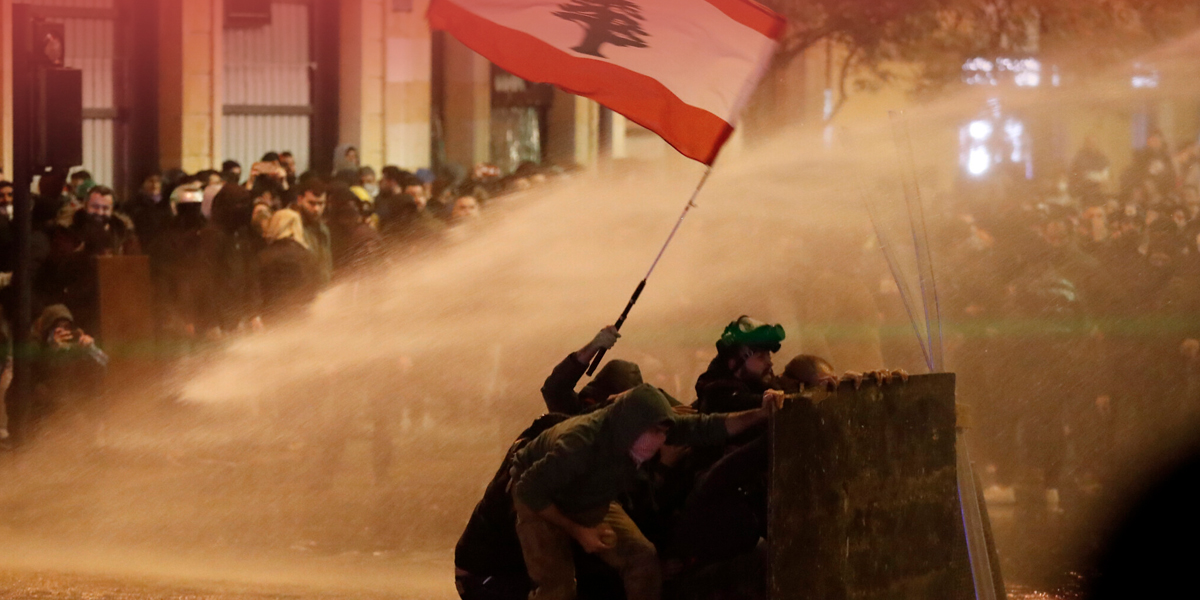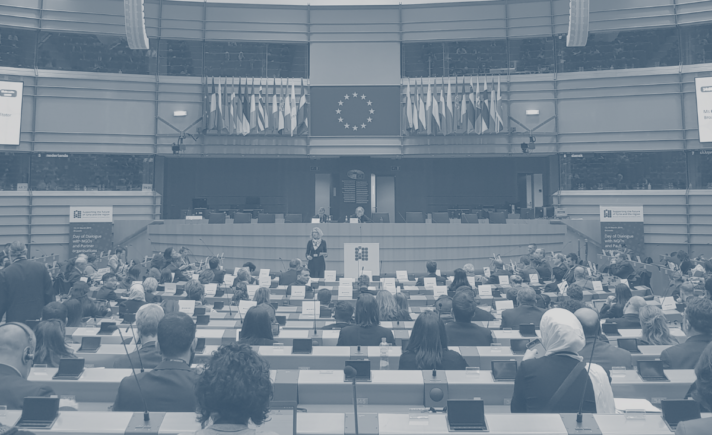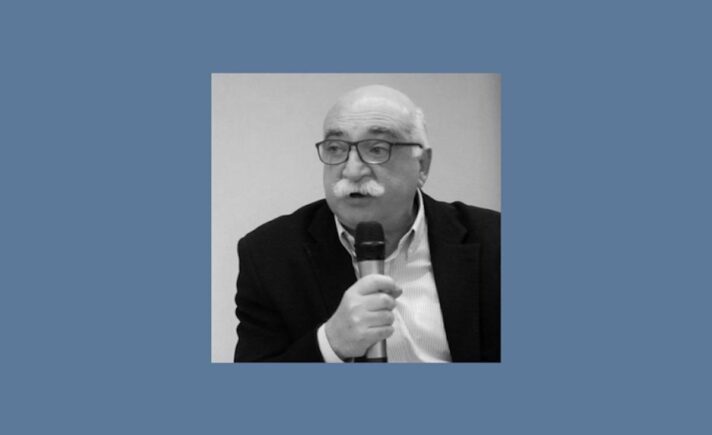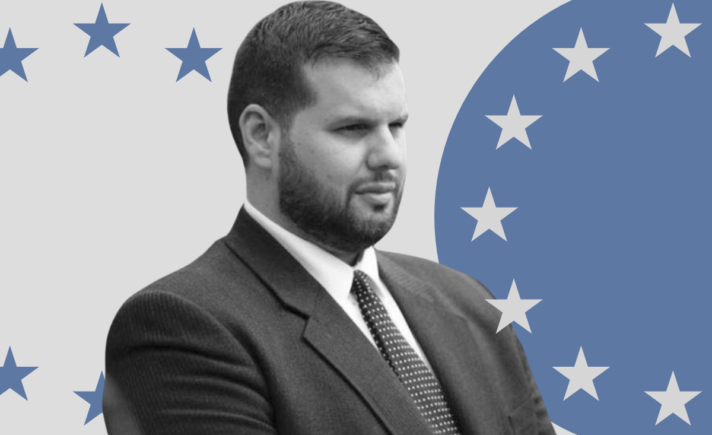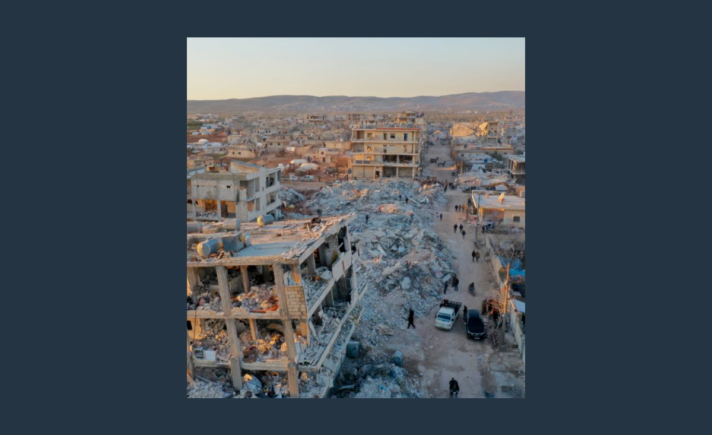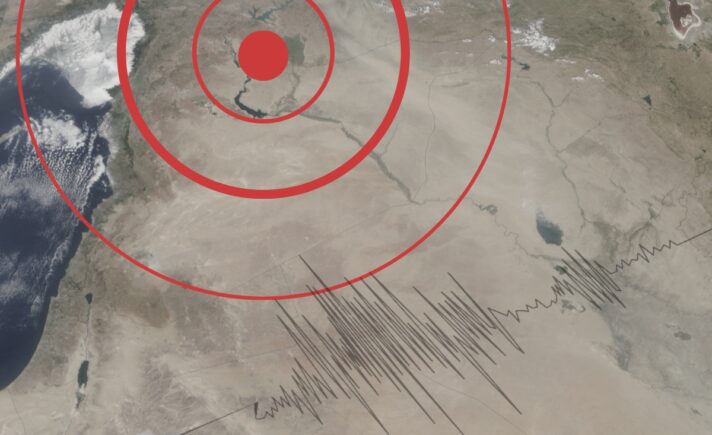During the handover ceremony at Lebanon’s interior ministry last Thursday, incoming Interior Minister Brig. Gen. Mohammed Fahmi declared he would not permit “attacks against the security forces, which are carrying out their duties, and which […] have shown brilliance in terms of proactive security.” The days leading up to the formation of Lebanon’s new cabinet on 21 January offered a troubling picture of this “brilliance,” with intensified violence by those same security forces against protesters, reaching the point of shooting a number of their eyes out with rubber bullets aimed directly at their faces, and other unprecedented measures such as waiting outside hospitals to arrest the wounded at the doors.
In parallel with this violence, Lebanon’s banks have continued to detain depositors’ funds, imposing severe limits on the amounts of US dollars that may be withdrawn on a weekly basis. Public fury at these measures reached a peak on 14 January, when a number of protesters physically attacked certain bank branches in Beirut’s Hamra district, smashing their facades. Lebanon’s authorities have since used this and other escalatory acts by demonstrators as justification for further violence by security forces. In a tweet on 18 January, then-Caretaker Prime Minister Saad al-Hariri described protesters as non-peaceful lawbreakers, calling on “security and military forces” to “rein in the hooligans and infiltrators.”
Lebanon’s new government, headed by first-time Prime Minister Hassan Diab, is widely seen as representing Hezbollah and its allies, especially the Free Patriotic Movement. Key parties historically opposed to Hezbollah, such as Hariri’s Future Movement and the Lebanese Forces, have no seats in the new cabinet. Yet the similarities in the above two statements by Hariri and Fahmi—both tantamount to green lights for further force against demonstrators—lead analysts to describe the incoming government as one representing the Lebanese political system as a whole.
“Diab’s cabinet is the first since the [1989] Taef Agreement, at least, in which the de facto powers hide behind figures with no political history or stature, in order to avoid provoking the street, which has risen up against the legendary corruption of the ruling clique,” the Lebanese journalist Hussam Itani told Al-Jumhuriya. Through the new cabinet, this ruling clique aims “to try and win the favor of the international community, especially the West, whose potential intervention via aid and development programs has become the sole lifeline that could spare the authorities the need to declare their bankruptcy and submit to austerity measures with international supervision.”
Diab’s government is thus tasked “first and foremost with rescuing the existing regime,” said Itani. “The goal is to prevent the leak-riddled ship from sinking along with everything in it. Hezbollah will act as its protector, as its Secretary-General Hassan Nasrallah has stated more than once since the start of the uprising on 17 October [2019].”
Assad’s fingerprints
Another conspicuous aspect of Lebanon’s new cabinet is the apparent involvement of the Syrian regime in its formation, through the Lebanese MP Jamil al-Sayyed, formerly the head of Lebanon’s General Security under ex-President Emile Lahoud, at the height of the Assad regime’s military occupation of Lebanon.
“Since the election of Jamil al-Sayyed as an MP in 2018, in a process marred by eye-popping fraud, it was clear that he was coming to parliament at the direct request of the Syrian authorities, implemented by Hezbollah,” Itani told Al-Jumhuriya. “The manner in which he was imposed on parliament suggests he’s been tasked with serving the Assad regime’s interests at the operational level, so to speak, while Hezbollah serves those interests at the strategic level. Among his tasks was to find candidates for the new cabinet posts, investigating their backgrounds and loyalties, in addition to his broader consultative role in which he takes the place of former Syrian intelligence officers in Lebanon, such as Ghazi Kanaan and Rustum Ghazaleh.”

Among the most prominent obstacles facing Diab’s government is the persistence of Lebanon’s popular uprising. Taken together, the facts above suggest force will be the government’s primary tool for tackling the issue. Affirming this analysis, the Lebanese journalist Khaled Saghieh told Al-Jumhuriya the government’s main objective in the coming period will be to “transform the revolution into mere demonstrations in certain squares, without allowing the blocking of roads nor disruption of the government’s activity, nor any form of real disturbance, enabling them to run the country in the same way [as before] without being affected by continued protests.”
A clear indication of this, said Saghieh, is “the growing emphasis on distinguishing between peaceful and non-peaceful demonstrators, as though there were demonstrators using violence.” The appointment of Interior Minister Fahmi, the former head of military security under President Lahoud, is a further sign the government will seek to escalate violence against protesters, treating them as a security threat rather than a political movement, added Saghieh.
There are, however, further obstacles facing Diab’s cabinet, foremost among them Lebanon’s deteriorating economy, its bank crisis, and the depreciating national currency. From these, Saghieh says there is only one way out for Diab’s government—or any other government formed by the same powers. This is “to obtain hard currency from outside the country, which the government may or may not succeed in doing, as well as continuing the painful measures against depositors, and transitioning to a new official exchange rate different from the one Lebanon has known for the last twenty years.”
Yet the close link between Lebanon’s government and Hezbollah represents a fundamental barrier to foreign parties once again rescuing the Lebanese economy, which is fast crumbling under the weight of corruption, plunder, and mismanagement. In any case, any external intervention to revive the economy, whether by the International Monetary Fund or anyone else, will inevitably come with harsh austerity measures to ensure the country’s ability to pay its debts. These measures will only further increase the anger on the street. The only conceivable alternative to them would be to end the corruption and wasteful spending, and implement radical economic reforms, which would in effect mean changing the structure of the Lebanese system, based as it is on sectarian patronage networks. The Diab government, formed precisely in order to save this same system, will naturally not be the one to implement such reforms.
Lebanon’s protest movement faces challenges of great complexity. With the advent of Diab’s government, and the concurrent escalation in violence by security forces, these challenges have become greater still—as well as more dangerous. Noting how the traditional political factions have tried to summon the specter of the civil war, Itani tells Al-Jumhuriya that “the memory of the civil war serves to scare and deter people from escalating the revolution toward more violent options, especially given the existence of a large, armed sectarian force; Hezbollah; which stands ready to pounce on the uprising at any moment it deems favorable.”
As for the options available to Lebanon’s protesters, Saghieh says there are none except “escalating in the face of this government, and all who say it should be given a chance, because it is a government of the same powers in new guise. The challenge now is to create new tactics for dealing with the rapid dispersals of the demonstrations by excessive force, and for pressuring the parliament and cabinet, and preventing them from continuing their work and meetings as normal.”
“The uprising is forced to navigate many mines, and to choose the appropriate tactics day by day,” agrees Itani, who nonetheless concludes on a somewhat positive note. “Anyone who followed the formation of Diab’s government was left with the sense that the political junta were wrangling over positions as though they were spoils and prey, exactly as they’ve been doing for years. This disconnect from reality—even if it looks extremely provocative to the uprising’s supporters—confirms the decline of the current regime’s legitimacy, and the impossibility of it holding the reins in the same manner it used to before the revolution.”
[Editor’s note: This article was originally published in Arabic on 27 January, 2019.]


